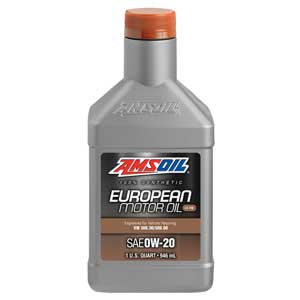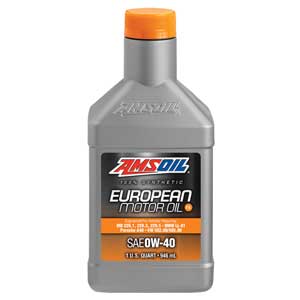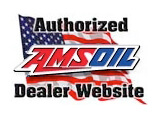28 Nov Motor oils isn’t “a one-size-fits-all” vehicles
There are differences between motor oils for European and domestic vehicles.
For all their benefits, European cars can be a hassle to maintain. Some makes and models are notorious for their interesting and expensive engineering benefits. Another difference is the motor oils they use.
OEMs Create Their Own Oil Specifications
One of the biggest differences between motor oils for European and domestic vehicles is the performance requirements each must meet. In the U.S. and Canada, it’s typically an industry-wide motor oil specification, such as API SP.
European original equipment manufacturers (OEMs), however, typically maintain their own motor oil performance specifications. A Volkswagen* owner, for example, must use an oil that meets the requirements of VW’s own performance specs. The same holds for Mercedes-Benz,* BMW,* Porsche* and other European cars.
European Motor Oil Specs
Complicating matters, each European OEM motor oil specification is slightly different. One OEM may require an oil that offers better performance against oxidation, while another requires better resistance to viscosity loss. Different engine models can require different oil chemistries of the same viscosity. For example, VW requires some of its engines to use a 0W-20 oil that meets its 508.00/509.00 spec, but others must use a 0W-20 oil that meets a different spec. Some BMW engines require a 5W-40 oil that meets the BMW LL-01 spec, while others require a 5W-40 that meets the BMW LL-04 spec. The specificity can easily confuse motorists.
OEM specifications tend to be stricter and require increased motor oil performance than the industry specs to which the U.S. is accustomed. This requires more advanced (and expensive) motor-oil technology delivered almost exclusively by synthetics.
General Motors,* has taken a page out of the playbook of its European counterparts by maintaining its own GM dexos* performance specifications.
Stricter Emissions Standards
The European Union maintains stricter standards for carbon dioxide (CO2) and carbon monoxide (CO) emissions than the U.S. U.S. standards for nitrogen oxides [NOx] and particulate matter [PM] are more strict. With modern diesels emitting lower CO2 than gasoline engines, the European market pivoted toward diesel powered vehicles in the 1990s. Diesels also provide better fuel economy.
Diesels produce higher levels of NOx and PM. To counteract this, diesel powered vehicles use diesel particulate filters (DPF) and catalysts designed to reduce pollutants from the exhaust before they exit the tailpipe.
An oil’s formulation can negatively affect sensitive emissions-control devices. Certain components in the motor oil can reduce the effectiveness and life of DPFs and other emissions devices. For that reason, European specifications often limit certain ingredients to protect emissions-control systems.
Longer Oil-Change Intervals
Europeans have long practiced what’s only recently caught on in North America – longer oil-change intervals. Europeans are accustomed to changing oil far less often, with drain intervals of 10,000 miles (16,000 km) or so, are quite common. One reason is the higher cost of oil in Europe and the differences between manufacturer recommendations. For example, most modern BMWs require oil changes only every 15,000 miles (24,140 km). In the U.S., most people change oil around every 5,000 miles (8,000 km). The mileage figure increases if the vehicle is equipped with an electronic oil-life monitoring system.
Longer drain intervals common with European cars, require a motor oil capable of protecting against wear, deposits and sludge for the duration, which requires a more robust oil.
Different Viscosities
Many European OEMs have historically suggested different viscosities for different operating temperature ranges. In cold weather, the OEM may recommend 5W-30. In warm weather, 5W-40. Traditionally, drivers settle on a 0W-40 or 5W-40 to offer the best of both worlds – good cold-flow at startup to protect against wear and good resistance to heat once operating temperatures are reached. However, like their domestic counterparts, European manufacturers are increasingly recommending reduced oil viscosities to help improve fuel economy.
Amsoil updated line of 100% Synthetic European Motor Oil reflects this trend. Amsoil recently introduced two new 0W20 products. Amsoil full line provides an option for just about any European car owner, no matter the performance spec or viscosity. The best way to find the right oil is to use our Product Guide at AMSOIL.com.




